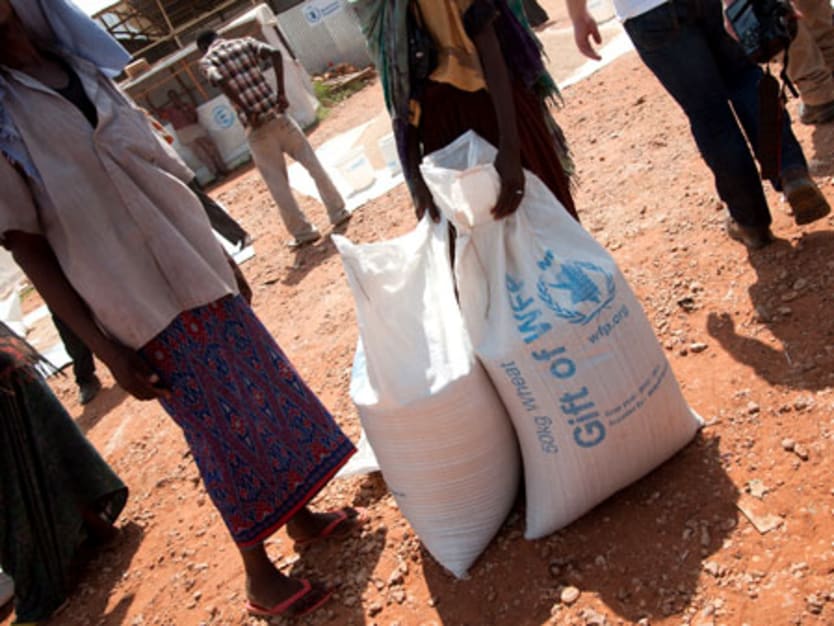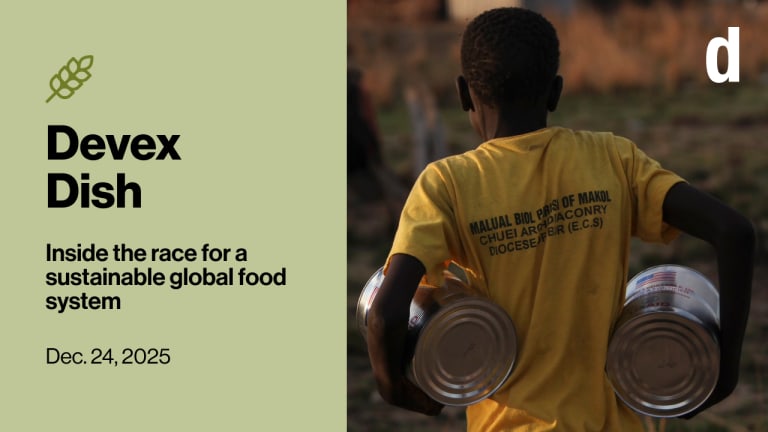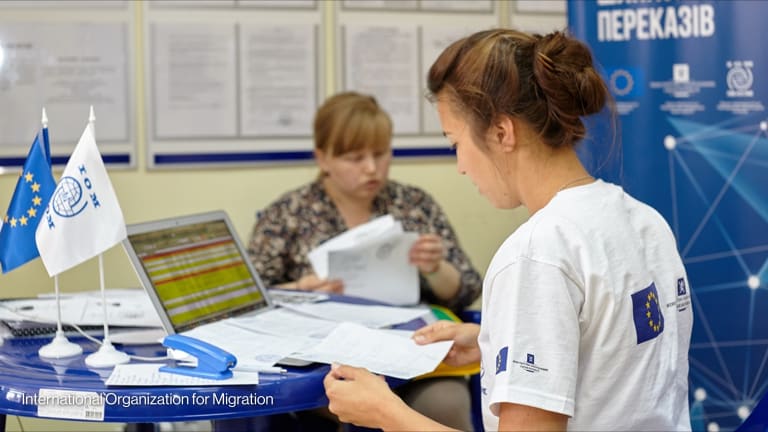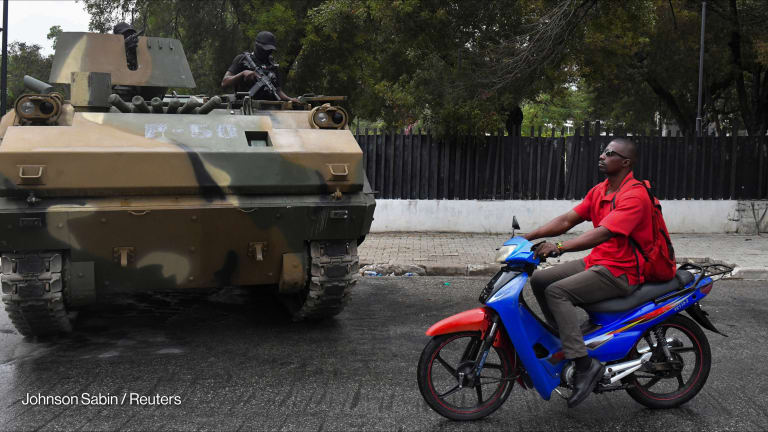
A book launching tomorrow at World Food Program headquarters in Rome questions whether humanitarian agencies are doing enough to protect civilians in politically unstable and insecure areas.
The 161-page book, titled ”Protection in Practice: Food Assistance with Safety and Dignity,” is designed to fuel discussions within the aid community about ways to better protect civilians while providing relief. Its launch comes on the eve of a high-level meeting on the effectiveness of humanitarian assistance in the Sahel region, which is featured in the book.
According to its editors, the book raises questions about pragmatic and moral issues that have affected WFP’s work on the ground, and offers possible solutions that may be of interest to other humanitarian groups as well.
“We were really just wondering, is it enough to deliver the caloric needs of somebody when that person may be exposed to violence or abuse?” one of the book’s co-editors, Nicholas Crawford, who works on humanitarian policy issues at the Food and Agriculture Organization, said in a phone interview with Devex. “We wanted to make sure we were being very self-critical as an organization.”
In 2008, more than 80 percent of WFP’s operational expenditures were concentrated in 32 conflict, post-conflict or fragile states, the book finds. Crawford and co-editor Gina Pattugalan, a policy officer with WFP’s humanitarian policy and transition service, began to document gaps in WFP’s delivery of aid and attention to security and human rights right around that time.
Over the last few years, improvements — articulated in the book — in connecting these dots have been made, they said, but challenges remain.
“There’s been a pretty tremendous shift within WFP itself, and the program has been fairly courageous and self-reflecting about its own limitations and failures,” Crawford said. “For example, ‘protection’ was not really a word that was used within the WFP, and abuse and violations were thought to be the responsibility of other U.N. agencies and governments.”
Now, Pattugalan said, all of WFP’s 15,000 employees are trained in the concepts of protection and on the importance of law, and in some cases, like for workers providing aid now to Syrian refugees, the rights of refugees.
“It’s becoming an innate part of the framework for WFP, of our management and thinking process when it comes to providing food aid,” explained Pattugalan, noting a shift to cash vouchers instead of the direct delivery of food in bulk. “It’s more about safety and the rights of the populations and protection needs.”
The book includes case studies of 15 countries and territories including Pakistan, Afghanistan, Sri Lanka, Myanmar, Colombia and West Africa, with reporting by contributing authors conducted from late 2004 to early 2011. Chapters focus on the roles of humanitarian organizations like WFP in protecting civilians, without a specific mandate to do so, whether WFP already directly engages in protection-related activities without overt acknowledgment, and obstacles to adding a protection element to humanitarian assistance delivery work.
Time and expenses were singled out as two core factors that could prevent WFP from making a full-fledged shift “towards a more assertive protective approach,” according to the book.
While the book is specific to the work of WFP, Crawford said he hopes its analysis and recommendations will fuel a discussion that could apply to other international humanitarian organizations.
“Our idea is that it could sort of reinvigorate the discussion about how practical assistance, whether for food or nonfood aid items, can be delivered in ways that contribute to protection in practical ways, as opposed to a theoretical discussion,” he said. “We hope it prompts thinking about what nonmandated agencies that are there on the ground can still do in this area of protection.”
Read more development aid news online, and subscribe to The Development Newswire to receive top international development headlines from the world’s leading donors, news sources and opinion leaders — emailed to you FREE every business day.








